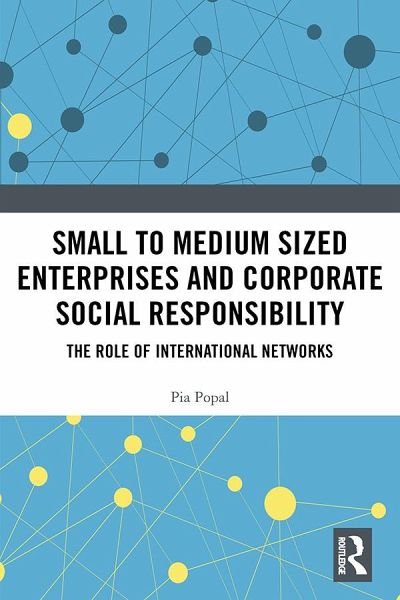
Small to Medium Sized Enterprises and Corporate Social Responsibility
The Role of International Networks
Versandkostenfrei!
Versandfertig in 1-2 Wochen
149,99 €
inkl. MwSt.
Weitere Ausgaben:

PAYBACK Punkte
75 °P sammeln!
Explains why small firms prefer to engage in sustainable development within institutionalized forms of CSR rather than act in isolation, and provides recommendations on how to support and increase SME participation.













